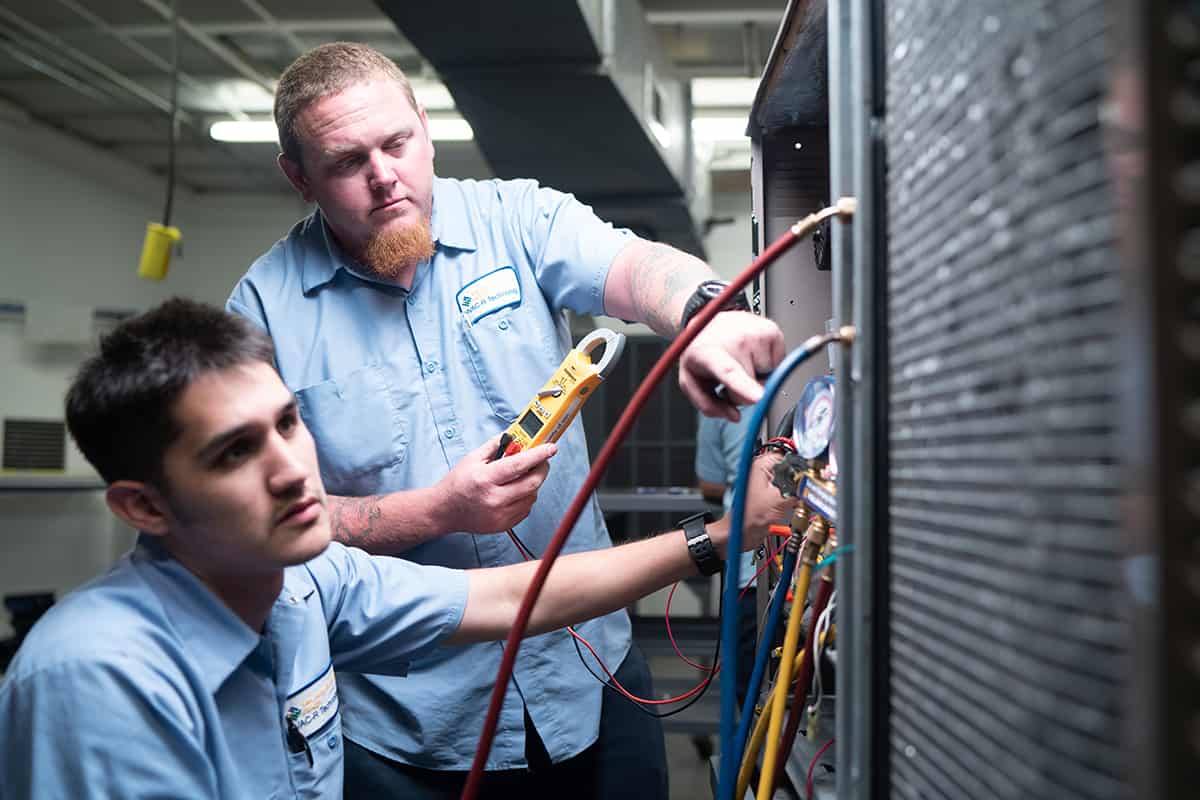

Articles
How To Become A HVAC Engineer
Modified: December 7, 2023
Learn the essential articles to become a skilled HVAC engineer. Explore the step-by-step guide including tips and resources to kickstart your career in HVAC engineering.
(Many of the links in this article redirect to a specific reviewed product. Your purchase of these products through affiliate links helps to generate commission for Storables.com, at no extra cost. Learn more)
Introduction
Welcome to the world of HVAC engineering, where comfort and efficiency converge! As technology continues to revolutionize the way we live, work, and interact with our surroundings, the demand for skilled professionals in Heating, Ventilation, and Air Conditioning (HVAC) engineering is on the rise. In this article, we will explore what HVAC engineering entails, the education and training required to become an HVAC engineer, the necessary skills and qualifications, licensing and certification requirements, job responsibilities, as well as the job outlook and salary expectations in this field.
HVAC engineering is a specialized branch of mechanical engineering that focuses on the design, installation, operation, and maintenance of heating, ventilation, and air conditioning systems. These systems play a crucial role in creating comfortable indoor environments in residential, commercial, and industrial settings. HVAC engineers are responsible for developing innovative solutions to provide optimal thermal comfort, indoor air quality, and energy efficiency.
In order to become an HVAC engineer, a solid educational foundation is essential. Most employers prefer candidates with a bachelor’s degree in mechanical engineering or a related field. A recognized engineering program provides students with a strong understanding of the fundamental principles of thermodynamics, fluid mechanics, and heat transfer, which are fundamental to HVAC system design and operation.
In addition to formal education, practical experience through internships or co-op programs can provide valuable hands-on training opportunities. These experiences allow aspiring HVAC engineers to work alongside professionals in the field and gain a deeper understanding of real-world applications and industry best practices.
Strong analytical and problem-solving skills are key attributes for HVAC engineers. They must be able to analyze complex systems, troubleshoot issues, and develop innovative solutions. Excellent communication and interpersonal skills are also important, as HVAC engineers often collaborate with architects, contractors, and other professionals involved in construction and building projects.
Licensing and certification requirements for HVAC engineers vary by jurisdiction. Some states or countries require engineers to obtain a professional engineers (PE) license, which typically involves passing a licensing exam and accumulating a certain amount of professional experience. Additionally, there are professional organizations, such as the American Society of Heating, Refrigerating, and Air-Conditioning Engineers (ASHRAE), that offer certifications to validate an engineer’s expertise and knowledge in the HVAC field.
Key Takeaways:
- HVAC engineering offers a dynamic and rewarding career path, requiring a strong educational foundation, technical expertise, and a commitment to energy efficiency and sustainability. Continuous learning and innovation are key to success in this evolving field.
- HVAC engineers play a crucial role in creating comfortable, energy-efficient, and sustainable indoor environments. With opportunities for career growth and advancement, they contribute to a greener future through innovative HVAC solutions.
Read more: How To Become A HVAC Technician
What is HVAC Engineering?
HVAC engineering is a specialized field within mechanical engineering that focuses on the design, installation, operation, and maintenance of heating, ventilation, and air conditioning systems. These systems are essential for creating comfortable indoor environments in a wide range of settings, including residential buildings, commercial spaces, industrial facilities, and even vehicles.
The primary goal of HVAC engineering is to provide optimal thermal comfort, indoor air quality, and energy efficiency. HVAC engineers design systems that control and regulate temperature, humidity, and air flow to create a comfortable and healthy environment for occupants.
Heating is a vital aspect of HVAC engineering. In cold climates, heating systems are necessary to raise the indoor temperature to a comfortable level. Various methods are used for heating, including forced air systems, radiant floor heating, and heat pumps.
Ventilation is another crucial component of HVAC engineering. Proper ventilation ensures the supply of fresh air and the removal of stale air, odors, and pollutants from indoor spaces. This is achieved through mechanical ventilation systems that use fans or natural ventilation that relies on architectural design features to facilitate air circulation. Ventilation plays a significant role in maintaining indoor air quality and preventing the buildup of harmful substances such as carbon dioxide and volatile organic compounds.
Air conditioning, often referred to as cooling, is an essential part of HVAC engineering, especially in regions with hot climates. Air conditioning systems remove heat and humidity from indoor spaces to maintain comfortable temperatures. These systems typically use refrigeration technology to cool the air and distribute it throughout the building via ductwork or other means.
HVAC engineers employ various principles of thermodynamics, fluid mechanics, and heat transfer to design HVAC systems. They analyze the specific requirements of a building or space, taking into account factors such as occupancy, usage patterns, and external climate conditions. Based on these considerations, engineers determine the appropriate size, capacity, and configuration of heating, ventilation, and air conditioning equipment.
With the growing emphasis on energy efficiency and sustainability, HVAC engineering has evolved to incorporate eco-friendly practices. Engineers aim to design systems that minimize energy consumption, reduce greenhouse gas emissions, and incorporate renewable energy sources. This includes the use of energy-efficient equipment, such as high-efficiency HVAC units and intelligent controls, as well as the integration of renewable energy systems like solar or geothermal energy.
In summary, HVAC engineering is a specialized field that combines mechanical engineering principles with environmental considerations to design heating, ventilation, and air conditioning systems that provide comfort, indoor air quality, and energy efficiency.
Education and Training Requirements
To pursue a career in HVAC engineering, a solid educational foundation is essential. Most employers prefer candidates who have completed a bachelor’s degree in mechanical engineering or a related field. A typical mechanical engineering program includes coursework in thermodynamics, fluid mechanics, heat transfer, and HVAC system design.
During their undergraduate studies, aspiring HVAC engineers learn key concepts and principles that form the basis of HVAC engineering. These include understanding the properties of fluids, heat transfer mechanisms, psychrometrics (the study of air and its properties), and thermodynamics. Students also gain knowledge about different HVAC system components, such as air handling units, heat exchangers, pumps, and control systems.
Additionally, many universities offer specialized HVAC engineering courses or concentrations within the mechanical engineering program. These courses delve deeper into HVAC system design, energy analysis, HVAC controls, and indoor air quality. Students may also have the opportunity to work on projects related to HVAC engineering and gain hands-on experience with HVAC design software and simulation tools.
While a bachelor’s degree is the minimum educational requirement, some HVAC engineers choose to pursue advanced degrees, such as a master’s or a Ph.D. in mechanical engineering. These advanced degrees can provide a deeper understanding of HVAC engineering principles and open up more research and leadership opportunities in the field.
Hands-on training is also an important aspect of becoming an HVAC engineer. Many universities offer co-op programs or internships where students can gain practical experience by working directly with HVAC professionals or engineering firms. These opportunities allow students to apply their theoretical knowledge to real-world projects, learn about industry best practices, and develop crucial problem-solving and technical skills.
Continuing education is also a vital component of a successful HVAC engineering career. Since HVAC technology is constantly evolving, it is important for engineers to stay updated on the latest industry trends, innovations, and regulations. They can achieve this through attending conferences, participating in professional development programs, and pursuing certifications offered by organizations such as the American Society of Heating, Refrigerating, and Air-Conditioning Engineers (ASHRAE).
In summary, a bachelor’s degree in mechanical engineering or a related field is typically required to become an HVAC engineer. A strong educational background, hands-on training, and a commitment to continued learning are essential to succeed in this dynamic and evolving field.
Skills and Qualifications
Being an HVAC engineer requires a combination of technical knowledge, analytical skills, and communication abilities. Here are some key skills and qualifications that are important for success in this field:
- Technical Knowledge: HVAC engineers must have a solid understanding of thermodynamics, fluid mechanics, and heat transfer principles. They should be knowledgeable about various heating and cooling systems, ventilation methods, and control systems. Proficiency in computer-aided design (CAD) software and simulation tools used in HVAC system design is also important.
- Problem-Solving Abilities: HVAC engineers are often faced with complex challenges and issues that require critical thinking and problem-solving skills. They must be able to analyze system performance, troubleshoot problems, and develop innovative solutions to optimize HVAC system efficiency and performance.
- Attention to Detail: Precision and attention to detail are crucial when designing HVAC systems. Engineers must accurately calculate cooling and heating loads, size ducts and equipment, and ensure that all components work together seamlessly to provide optimal comfort and efficiency.
- Communication Skills: HVAC engineers frequently collaborate with architects, contractors, and other professionals involved in construction projects. Effective communication skills are essential for understanding client needs, conveying technical information, and coordinating with various stakeholders throughout the design, installation, and maintenance phases.
- Project Management: HVAC engineers are often responsible for managing multiple projects simultaneously. They must have strong organizational skills to ensure that projects are completed on time and within budget. Attention to deadlines, prioritization, and coordination with team members are vital for successful project execution.
- Knowledge of Codes and Regulations: HVAC engineers must be familiar with local building codes, regulations, and industry standards related to HVAC system design, installation, and maintenance. They need to ensure that their designs comply with safety guidelines and environmental regulations.
- Continuous Learning: HVAC technology is continuously evolving, and engineers must stay updated on the latest advancements, best practices, and energy efficiency standards. Continuous learning through professional development programs, attending industry conferences, and pursuing certifications helps HVAC engineers stay at the forefront of the field.
Having these skills and qualifications enables HVAC engineers to effectively design, analyze, and optimize HVAC systems for various projects, from residential homes to large commercial buildings. By combining technical expertise, problem-solving abilities, and strong communication skills, HVAC engineers contribute to creating comfortable, energy-efficient, and sustainable indoor environments.
Licensing and Certification
Licensing and certification requirements for HVAC engineers vary depending on the country or state in which they practice. These requirements are in place to ensure that engineers have the necessary knowledge, skills, and expertise to design, install, and maintain HVAC systems in a safe and efficient manner.
In the United States, HVAC engineers may be required to obtain a Professional Engineer (PE) license. The requirements for obtaining a PE license typically include having a bachelor’s degree in engineering from an accredited program, accumulating a certain amount of professional engineering experience, and passing the Fundamentals of Engineering (FE) exam and the Principles and Practice of Engineering (PE) exam.
The FE exam is the first step toward obtaining a PE license and covers the fundamental principles of engineering. The PE exam, on the other hand, focuses on an engineer’s specific discipline, such as mechanical engineering. The exams are designed to evaluate an engineer’s technical competence and understanding of engineering principles and practices.
In addition to licensure, there are also professional certifications available for HVAC engineers. These certifications are offered by organizations such as the American Society of Heating, Refrigerating, and Air-Conditioning Engineers (ASHRAE) and are designed to validate an engineer’s expertise and knowledge in specific areas of HVAC engineering.
ASHRAE offers several certifications, including the Certified HVAC Designer (CHD) and the Building Energy Modeling Professional (BEMP) certifications. These certifications demonstrate a professional’s competency in aspects such as HVAC system design, energy analysis, and building energy modeling. Achieving these certifications requires passing a comprehensive exam that tests the individual’s knowledge and understanding of the subject matter.
Obtaining a professional license or certification as an HVAC engineer is not mandatory in all places, but it can provide a competitive advantage in the job market. It demonstrates a commitment to professional development, a high level of expertise, and a dedication to maintaining industry standards. Many employers prefer to hire HVAC engineers who are licensed or certified, as it assures them of the engineer’s qualifications and competence in the field.
It’s important for HVAC engineers to stay informed about the licensing and certification requirements of the jurisdiction in which they intend to practice. They should seek guidance from professional engineering organizations or state licensing boards to understand the specific steps, requirements, and deadlines for obtaining a license or certification.
In summary, licensing and certification requirements for HVAC engineers vary by jurisdiction. While obtaining a professional license is often mandatory in some locations, achieving certifications from professional organizations can further enhance an engineer’s credentials, expertise, and marketability in the growing field of HVAC engineering.
Read more: How To Become A BIM Technician
Job Outlook and Salary
The job outlook for HVAC engineers is promising, with a growing demand for skilled professionals in this field. The increasing focus on energy efficiency and sustainable building practices, coupled with the need for comfortable indoor environments, has created a steady demand for HVAC engineering expertise.
The Bureau of Labor Statistics (BLS) projects a 4% growth rate for mechanical engineers, including HVAC engineers, from 2019 to 2029. This growth is expected to be driven by the need for more energy-efficient heating and cooling systems in buildings and the replacement of aging systems with newer, more efficient ones.
As technology advances, HVAC engineers are also increasingly involved in designing and implementing smart and connected HVAC systems. These systems utilize sensors, automation, and data analysis to optimize energy efficiency and enhance occupant comfort. The demand for engineers with knowledge of these emerging technologies is expected to continue to grow.
In terms of salary, HVAC engineers can expect to earn a competitive income. According to the BLS, as of May 2020, the median annual wage for mechanical engineers, including HVAC engineers, was $90,160. The lowest 10% earned less than $57,130, while the highest 10% earned more than $119,950.
The salary of HVAC engineers can vary based on several factors, including experience, education, geographic location, industry, and the size of the employing organization. HVAC engineers working in consulting firms, architectural and engineering services, or government agencies may earn higher salaries compared to those employed in other sectors.
It’s worth noting that HVAC engineers with additional certifications or advanced degrees may command higher salaries and have more opportunities for career advancement. Continuing education, gaining specialized knowledge in emerging HVAC technologies, and staying updated on industry trends can enhance an engineer’s earning potential.
Furthermore, the job market for HVAC engineers can also be influenced by economic conditions and construction activity. Employment opportunities may vary based on regional development, population growth, and investment in infrastructure projects.
In summary, the job outlook for HVAC engineers is positive, with a steady demand for their expertise in designing energy-efficient HVAC systems. Salaries for HVAC engineers are competitive and can vary based on factors such as experience, education, location, and industry. Continued professional development and acquiring additional certifications can enhance career prospects and earning potential in this dynamic field.
Consider pursuing a degree in mechanical engineering or HVAC technology. Gain hands-on experience through internships or apprenticeships. Obtain industry certifications to demonstrate your expertise. Keep up with the latest HVAC technology and industry trends.
Job Responsibilities
HVAC engineers play a crucial role in the design, installation, operation, and maintenance of heating, ventilation, and air conditioning systems. Their responsibilities encompass a wide range of tasks throughout the lifecycle of an HVAC project. Here are some key job responsibilities of HVAC engineers:
- System Design: HVAC engineers are responsible for designing HVAC systems that meet the specific needs of a building or space. They analyze factors such as occupancy, usage patterns, and climate conditions to determine the appropriate size, capacity, and configuration of heating, cooling, and ventilation equipment.
- Energy Analysis: HVAC engineers evaluate energy usage and consumption to optimize system efficiency. They employ energy analysis tools and techniques to assess the energy performance of HVAC systems, identify potential energy savings, and recommend energy-efficient strategies to reduce operational costs and environmental impact.
- Equipment Selection: HVAC engineers select and specify the appropriate HVAC equipment, including heating units, cooling units, ductwork, fans, pumps, and control devices. They consider factors such as efficiency, compatibility, reliability, and cost-effectiveness when choosing equipment for a project.
- Code Compliance: HVAC engineers ensure that all aspects of HVAC system design and installation comply with local building codes, industry standards, and environmental regulations. They must be knowledgeable about applicable codes and regulations to ensure the safety, health, and comfort of building occupants.
- Project Management: HVAC engineers often oversee multiple projects simultaneously, from initial concept design to final installation. They coordinate with architects, contractors, and other professionals involved in the project to ensure successful execution within budgetary and timeline constraints.
- System Commissioning: HVAC engineers are involved in the commissioning process, which includes testing, adjusting, and balancing the HVAC system to ensure its proper functioning. They identify and address any issues or deficiencies that may arise during commissioning, ensuring that the system operates efficiently and according to design specifications.
- Maintenance and Troubleshooting: HVAC engineers provide technical support and guidance for the ongoing maintenance and troubleshooting of HVAC systems. They develop maintenance plans, conduct system inspections, and diagnose and resolve any issues that may arise, ensuring optimal system performance and longevity.
- Documentation and Reporting: HVAC engineers generate detailed design drawings, specifications, and technical reports related to HVAC system design, installation, and performance. They maintain accurate documentation throughout the project lifecycle, providing a reference for future maintenance and modifications.
These responsibilities require HVAC engineers to have a strong technical background, excellent problem-solving skills, and effective communication abilities. They must be able to collaborate with multidisciplinary teams, manage projects effectively, and adapt to evolving technologies and industry standards. By fulfilling these responsibilities, HVAC engineers contribute to creating comfortable, energy-efficient, and sustainable indoor environments.
Types of HVAC Systems
HVAC systems come in various types, each designed to cater to specific building needs, climate conditions, and energy efficiency requirements. Here are some common types of HVAC systems:
- Split Systems: Split systems are the most common type of HVAC system, consisting of both indoor and outdoor components. The indoor unit contains the evaporator coil, blower, and air handler, while the outdoor unit houses the compressor and condenser coil. Split systems are typically used in residential and small commercial applications.
- Packaged Systems: Packaged systems are self-contained units that house all the components of an HVAC system in a single outdoor unit. These systems are commonly used in commercial buildings, where space may be limited. Packaged systems are available in different configurations, including air source heat pumps, gas/electric systems, and water-cooled units.
- Heat Pump Systems: Heat pump systems use refrigeration technology to provide both heating and cooling. They work by extracting heat from the outdoor air or ground and transferring it to indoor spaces during the heating season. In the cooling season, the process is reversed, and heat is removed from indoor spaces and released outside.
- Variable Refrigerant Flow (VRF) Systems: VRF systems are highly efficient and versatile HVAC systems that allow for individual temperature control in different zones or rooms. They use a variable-speed compressor and refrigerant flow control to precisely match the heating and cooling demands of each zone. VRF systems are commonly used in large commercial buildings or multi-zone residential applications.
- Chilled Water Systems: Chilled water systems use a centralized chiller to cool water, which is then distributed to individual fan coil units or air handling units throughout a building. These systems are often used in large commercial buildings, such as office complexes or hotels, where cooling loads can vary significantly and require precise temperature control.
- Radiant Heating and Cooling Systems: Radiant systems use pipes or electric mats installed in the floor, walls, or ceilings to provide heating or cooling through radiant heat transfer. These systems are known for providing comfortable and even temperatures. They are commonly used in residential applications or specific areas like bathrooms, kitchens, or commercial spaces with high ceilings.
- Geothermal Systems: Geothermal systems utilize the relatively constant temperature of the earth to provide heating and cooling. These systems circulate a fluid through underground pipes, allowing heat exchange with the earth. Geothermal systems are highly energy-efficient, but their installation cost can be higher compared to other HVAC systems.
Each type of HVAC system has its own advantages and considerations. The selection of the appropriate system depends on factors such as building size, climate conditions, energy efficiency goals, and budget constraints. HVAC engineers analyze these factors and work closely with clients to determine the most suitable system for their specific needs.
It’s worth noting that advancements in technology and increasing environmental concerns have led to the development of innovative and sustainable HVAC systems. These include systems that incorporate renewable energy sources, such as solar or geothermal energy, as well as systems that integrate smart controls and automation for optimal energy management.
By understanding the different types of HVAC systems and staying abreast of emerging technologies, HVAC engineers can design and recommend the most efficient and effective HVAC solutions that meet their clients’ needs while considering energy conservation and environmental impact.
Energy Efficiency and Sustainability
Energy efficiency and sustainability have become increasingly important considerations in HVAC engineering. With the growing concern for environmental impact and the rising costs of energy consumption, there is a strong emphasis on designing and operating HVAC systems that are energy-efficient and environmentally friendly.
One of the primary goals in HVAC engineering is to reduce energy consumption while maintaining optimal comfort levels. By improving the energy efficiency of HVAC systems, it is possible to minimize the amount of energy required for heating, cooling, and ventilation, resulting in lower utility bills and reduced greenhouse gas emissions.
There are several strategies and technologies employed to improve energy efficiency in HVAC systems:
- High-Efficiency Equipment: HVAC engineers recommend the use of high-efficiency equipment, such as heat pumps, air conditioners, and boilers, that meet or exceed minimum energy efficiency standards. These systems are designed to operate with less energy input while still providing the desired comfort conditions.
- Zoning and Controls: Implementing zoning and advanced control systems allows for precise temperature control in different areas or zones of a building. By only conditioning occupied spaces, energy waste is minimized, and individual comfort preferences can be satisfied.
- Heat Recovery Systems: Heat recovery systems can capture waste heat generated by HVAC systems and use it for other purposes, such as preheating incoming ventilation air or supplying hot water. This reduces the need for additional energy input and improves overall system efficiency.
- Variable-Speed Drives: Variable-speed drives in HVAC equipment, such as fans and pumps, adjust the speed and output to match current demand. This allows for better energy utilization by preventing excessive energy consumption during low-demand periods.
- Renewable Energy Integration: HVAC engineers increasingly incorporate renewable energy sources, such as solar and geothermal energy, into HVAC system designs. By utilizing clean, renewable energy, the reliance on conventional fossil fuel-based energy sources is reduced, leading to lower carbon emissions.
- Building Automation and Optimization: Intelligent building automation systems can monitor and optimize HVAC system performance, adjusting operation based on occupancy, weather conditions, and other factors. These systems use sophisticated algorithms to optimize energy use and comfort, ensuring that HVAC systems operate at peak efficiency.
Sustainability is another critical focus area in HVAC engineering. The aim is to minimize the environmental impact of HVAC systems throughout their lifecycle, from manufacturing and installation to operation and eventual decommissioning. HVAC engineers consider factors such as recyclability, use of environmentally friendly refrigerants, and the eco-friendliness of materials and components used in the system.
Additionally, HVAC engineers are increasingly involved in designing systems that promote indoor air quality and occupant health. This includes incorporating advanced filtration systems, implementing ventilation strategies that bring in fresh air, and ensuring effective humidity control to prevent the growth of mold and other pollutants.
By prioritizing energy efficiency and sustainability, HVAC engineers contribute to reducing resource consumption, lowering greenhouse gas emissions, and creating healthier and more sustainable built environments. The integration of energy-efficient practices and sustainable design principles into HVAC engineering plays a crucial role in achieving our global environmental goals.
Read more: How To Become Landscape Architect
Opportunities for Career Growth
Career growth opportunities in the field of HVAC engineering are abundant, driven by factors such as technological advancements, increasing demand for energy-efficient solutions, and the need for skilled professionals in the industry. HVAC engineers have the potential for both vertical and horizontal career advancement. Here are some avenues for career growth in HVAC engineering:
- Advanced Specializations: HVAC engineers have the opportunity to specialize in specific areas of HVAC engineering, such as energy modeling, indoor air quality, sustainable design, or building automation systems. By gaining expertise in these niche areas, engineers can differentiate themselves and pursue challenging and specialized career paths.
- Project Management: HVAC engineers who excel in project management skills can take on leadership roles and oversee larger and more complex projects. They become responsible for managing budgets, timelines, and teams, ensuring successful project execution from conception to completion.
- Research and Development: For engineers interested in innovation and pushing the boundaries of HVAC technology, opportunities exist in research and development. By conducting research, testing new technologies, and developing innovative solutions, engineers contribute to advancing the field of HVAC engineering.
- Consulting: HVAC engineers can establish their own consulting firms or work for established consulting companies. This gives them the opportunity to provide expert guidance to clients, collaborate with architectural and engineering teams, and contribute to the design and implementation of HVAC systems across a wide range of projects.
- Educational Roles: Some experienced HVAC engineers choose to transition into teaching or training roles. By sharing their expertise and knowledge, they can inspire and educate the next generation of HVAC engineers, contribute to the industry’s growth, and stay connected to the latest advancements.
- Industry Leadership: HVAC engineers can become involved in professional organizations, such as the American Society of Heating, Refrigerating, and Air-Conditioning Engineers (ASHRAE), and take on leadership roles. By actively participating in industry committees, conferences, and standards development, engineers can influence industry practices and contribute to shaping the future of HVAC engineering.
- Continuing Education: HVAC engineers should prioritize continuous learning and professional development. This can include pursuing advanced degrees, attending workshops and seminars, obtaining specialized certifications, and keeping up with the latest industry trends and technologies. By staying updated, engineers can remain competitive and adaptable in a rapidly evolving field.
The demand for HVAC engineers is expected to continue to grow as energy efficiency and sustainability become increasingly important in building design and operation. This opens up opportunities not only in traditional HVAC engineering roles but also in areas such as energy auditing, energy management, and green building consultancy.
Throughout their careers, HVAC engineers have the chance to make a significant impact on the built environment, promoting comfort, sustainability, and energy efficiency in buildings of all types. Career growth in HVAC engineering is driven by a combination of technical expertise, continuous learning, leadership skills, and a commitment to innovation. With the right skills and a passion for the field, HVAC engineers can enjoy a rewarding and fulfilling career with ample opportunities for growth and advancement.
Conclusion
HVAC engineering is a dynamic and essential field that plays a pivotal role in creating comfortable, energy-efficient, and sustainable indoor environments. From designing HVAC systems to optimizing their performance, HVAC engineers contribute to the well-being and comfort of individuals in residential, commercial, and industrial spaces.
In this article, we have explored the fundamental aspects of HVAC engineering, including the education and training required, the necessary skills and qualifications, licensing and certification, job responsibilities, types of HVAC systems, and the growing importance of energy efficiency and sustainability. It is evident that HVAC engineers are at the forefront of designing innovative solutions that prioritize energy conservation, occupant health, and environmental stewardship.
Whether it’s designing high-efficiency HVAC systems, implementing smart controls, integrating renewable energy sources, or promoting indoor air quality, HVAC engineers have the opportunity to make a significant impact on building performance and energy consumption.
Moreover, the field of HVAC engineering offers a wealth of opportunities for career growth and advancement. HVAC engineers can specialize in niche areas, take on project management roles, engage in research and development, start their own consulting firms, or contribute to industry leadership and education. Continuous learning and staying updated on the latest advancements are crucial to remain competitive and adaptable in this ever-evolving field.
As the world becomes more focused on sustainable practices and energy efficiency, the demand for HVAC engineers is expected to continue to grow. By embracing new technologies, integrating renewable energy sources, and designing energy-efficient systems, HVAC engineers are at the forefront of building a greener future.
In conclusion, HVAC engineering offers a rewarding and fulfilling career path for individuals who are passionate about creating comfortable and sustainable indoor environments. By continuously improving their skills, embracing innovation, and prioritizing energy efficiency, HVAC engineers can make a lasting impact on the built environment and contribute to a healthier and more sustainable world.
Frequently Asked Questions about How To Become A HVAC Engineer
Was this page helpful?
At Storables.com, we guarantee accurate and reliable information. Our content, validated by Expert Board Contributors, is crafted following stringent Editorial Policies. We're committed to providing you with well-researched, expert-backed insights for all your informational needs.

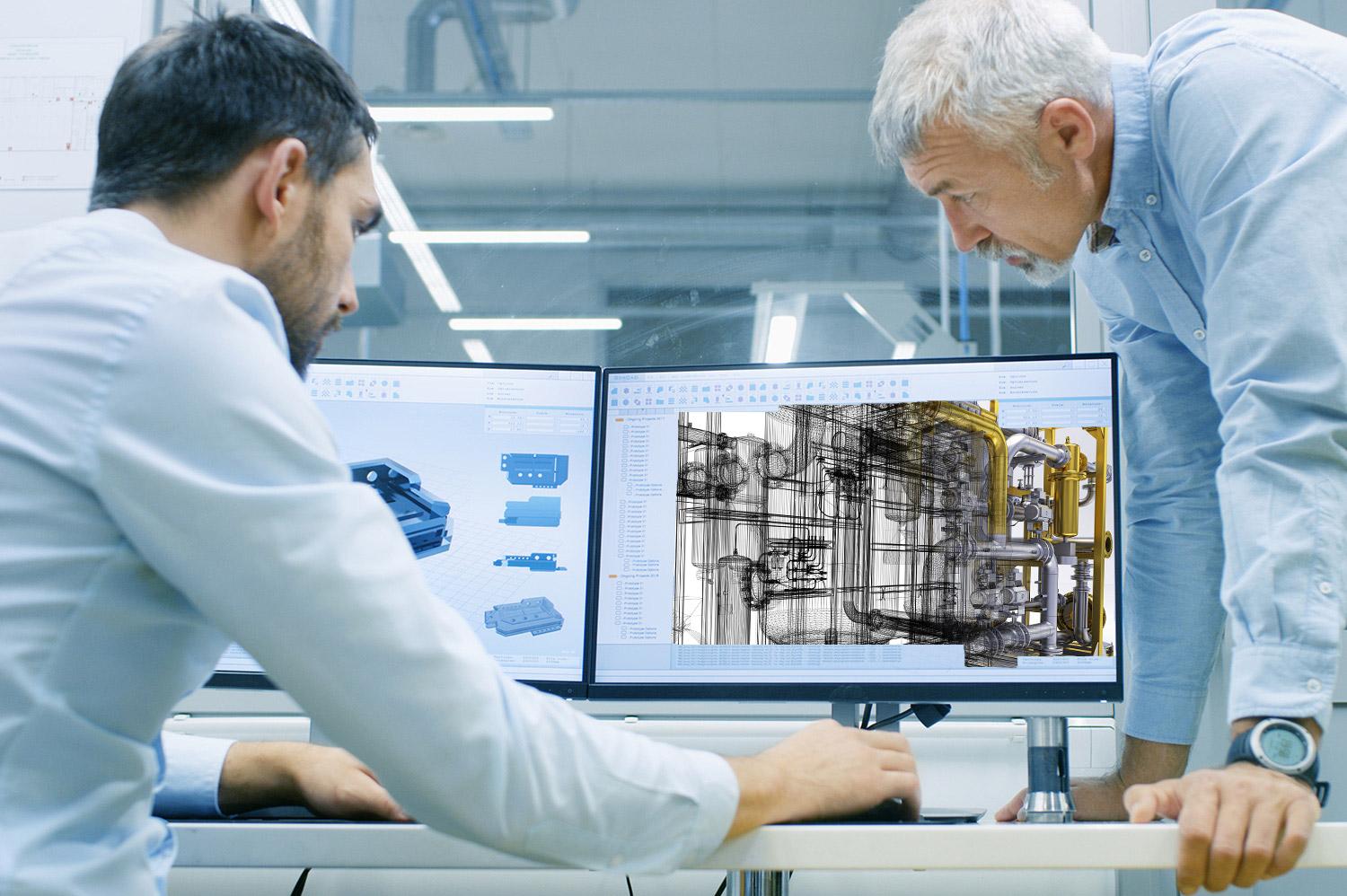

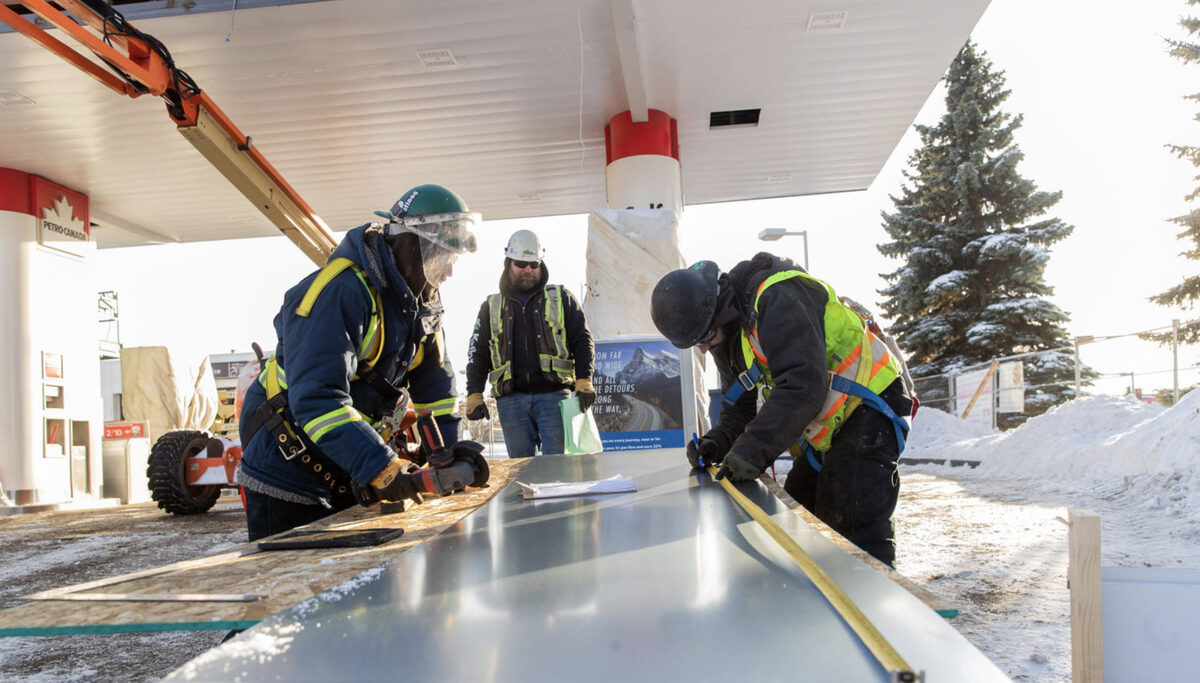

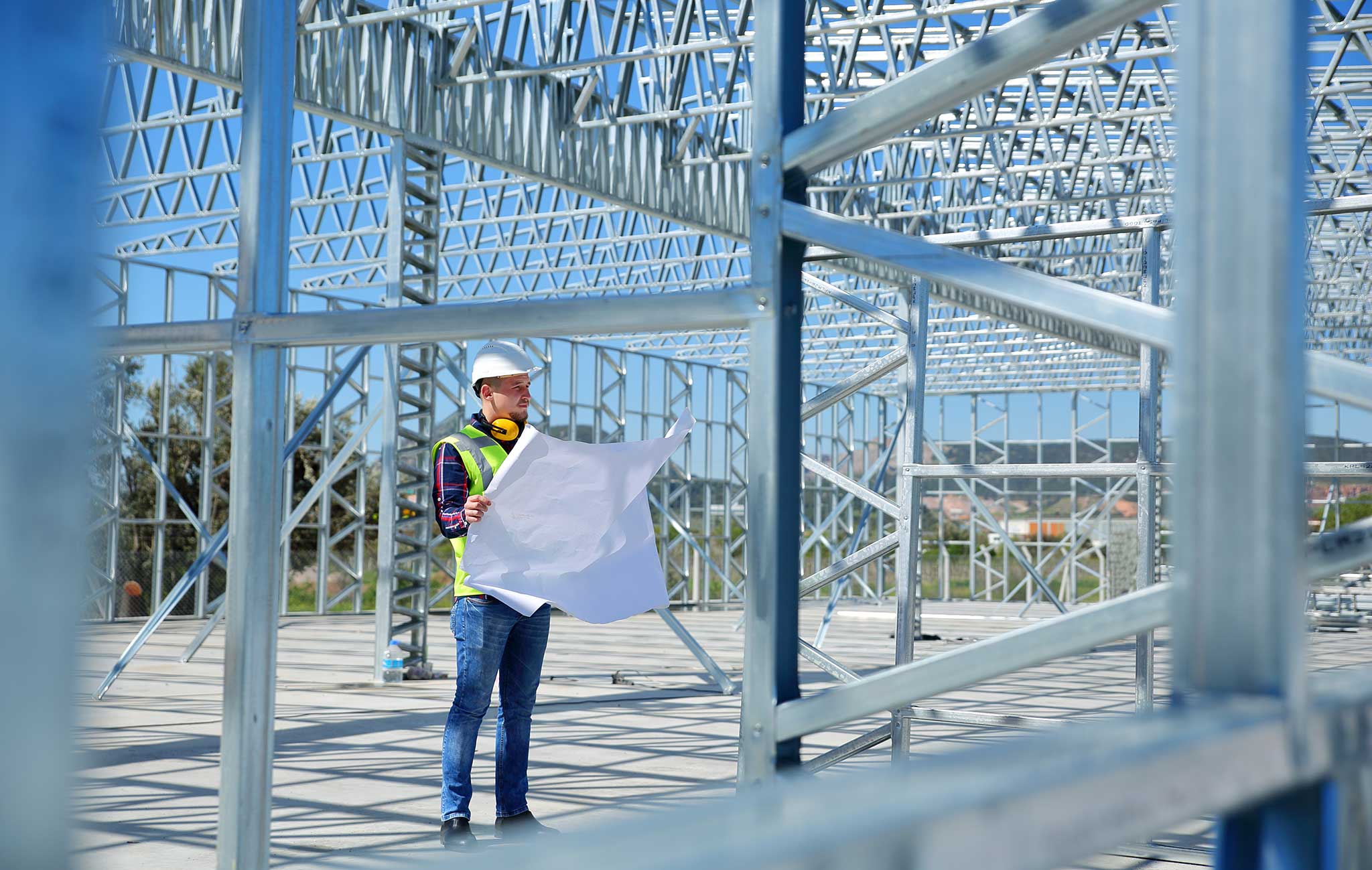

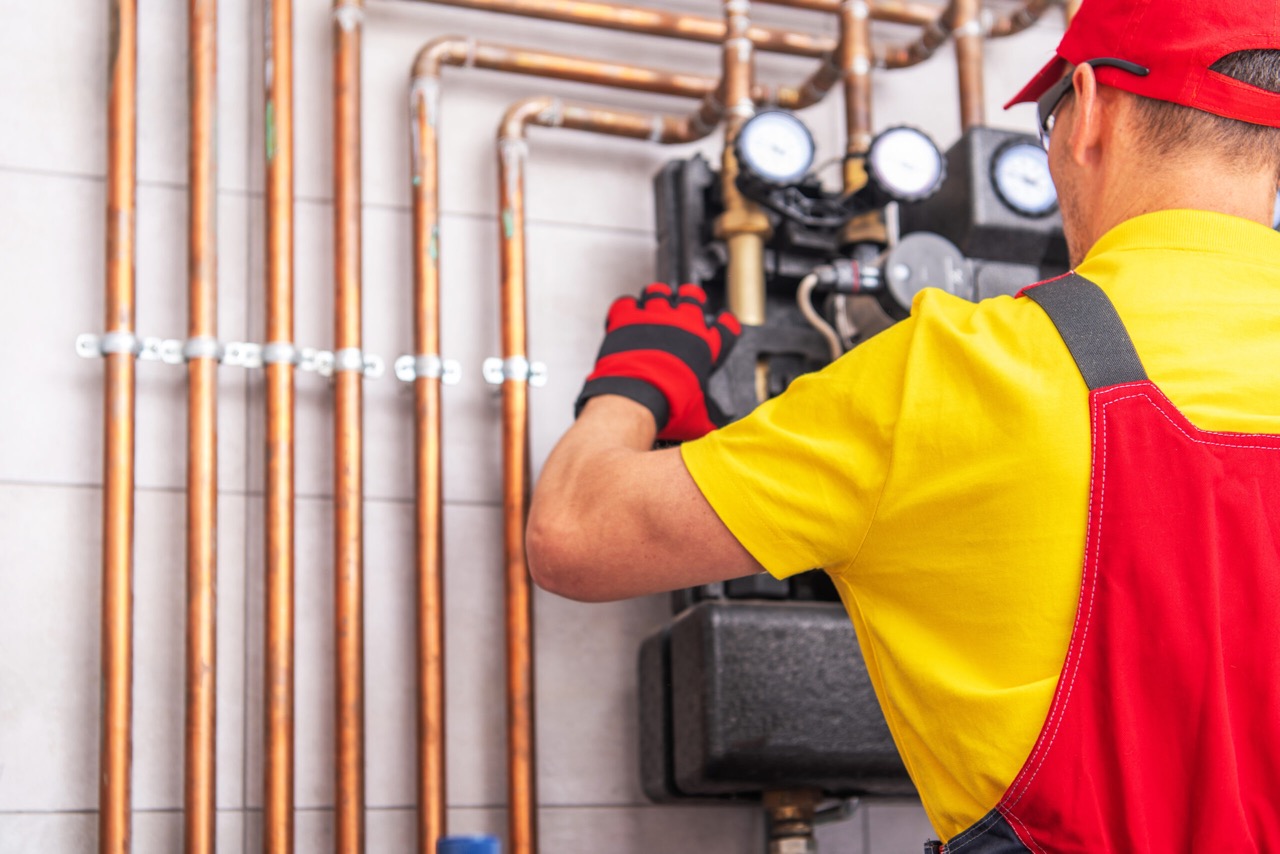






0 thoughts on “How To Become A HVAC Engineer”